 Pioneering in Canberra AA RAHMAN, Ph.D. (MIT)         Next part Next part 
I landed on Australian soil on 20 July 1977. I was not the first to do that – my much respected Aboriginal Elders’ ancestors were here thousands of years earlier, and even some Asians of our times, including very rare few shortly before me. But I still count myself amongst pioneer migrants of a sort – not only because arriving within the very first decade after Australia officially scrapped her shameful “White Australia” Policy- but also, and more importantly, because I had arrived with a pioneering spirit like “Johnny Appleseed” I had read about. He had traveled much across the American expanse in early pioneering days, randomly planting away Apple seeds as he moved onward, neither expecting to eat the fruits of the trees that might grow of his planted seeds, nor even overly concerned if the seeds would sprout out. Future America grew rich in apples throughout, starting off with those seemingly insignificant seeds, sown away by seemingly as insignificant poor but braving-on a man. That “Johnny Appleseed” modality became my life-long model in whatever little I do of good, by way of my labours of love. I had arrived to Australia, with a pioneering spirit that grew with that. The First Day The very first foot I set on Australia, that I remember, was in Canberra, that day, afternoon. I do remember that, I had a stopover in Melbourne and then in Sydney, and from there I had travelled to Canberra. I – after so many years – do not quite remember, if I got out of the plane and set my feet on Australian soil first in Sydney or Melbourne, or was it Canberra. It was most likely in Sydney – as my journey from Calcutta, via Hong Kong, up to Australia on a big BOAC aircraft - and it was very unlikely that the Canberra airport, very small in those days, was yet ready for big aircrafts from overseas. Also, there were no formalities – or so brief that I do not remember them – at Canberra airport, between stepping down from the aircraft and being outside the airport.
Canberra
I had met Mr Jukes - who used to spend part of the year at Oxford University, and part at Australian National University – at Dacca University, probably on one of his regular London- Canberra long haul. He was an Oxford scholar and formerly Soviet-expert at the British Defence and Foreign Ministry, but mainly an academic, and almost certainly. In those days, the British could come and go to and from – and live, and virtually do anything – in Australia, as any Australian citizen. Mr Jukes kindly picked up my small suitcase, gave his trade-mark swing of the head, with his ever-endearing semi-mysterious smile, hinted me to get on towards the door, and I followed. This trade-mark gesture of his, I had not seen – or noticed – before, when I had met him Dacca. But later, I was to get to used to that, over the years. To my astonishment, as I passed through the glass door, I was – following him – on the street, so to say, outside the airport. Having heard, known and also experienced a little through my one earlier foreign trip – to Calcutta, as one of the delegates to a Lions’ international (actually, regional) youth conference, around 1976 or so – and through my experience during this trip to Australia, I could not believe that one could so easily be out of an airport, with much hassle-loaden waits, formalities, and obstructions and fears of being penalised or stopped for any known or unknown reasons, including possible expectations of petty bribes. In those days, it was almost impossible to get out from Bangladesh without such hassles – and from experience I can say, it still involves such headaches there, but much lesser than in those days. Unlike now, then, it was even an official policy in Bangladesh to restrict nationals’ travels overseas – specially, if they were journalists or academics, and I was both a well-known young columnist, and a Dacca University young lecturer. But at Canberra airport, it was like breeze. I do not remember, if there was any very brief formality at the counter inside the one-room airport, and most likely there was none. In those days, while entry of non-Whites to Australia was much restricted – and obtaining a visa for such persons was almost impossible in those immediate aftermaths of the only recently abolished official “White Australia” policy – once one had proper visas, airport formalities seemed were almost minimal, and very pleasantly easy. First Australian Home – Bruce Hall Mr Jukes flung my bag in his little car. He drove us to a beautiful waterfront – the Burley Griffitn (artificial) Lake, I came to know later - that, also later I knew, is the one that cuts across the wider Canberra. And, while got both of us out of the car, also let loose a rather shaggy, quite big, dog of his, that was sitting in the back seat. The dog ran towards the water, and we had a lazy, brief stroll – myself breathed in the pure, fresh air of Canberra – those days, even much purer than now. My lungs, which had grown up in my boyhood, breathing in the fresh air of the snowclad Sulayman Ranges foothills of the southern, western extensions of the Himalayas in the-then pristine Baluchistan, were revived, as if, to the joys of breathing! The smell of eucalyptus, that I had heard before, and had imagined only as a teenager far away, reading about Australia and Ethiopia, was very refreshing. Amazingly beautiful and serene was the vast expanse of the landscape, the grey sky and grey blue expanse of eucalyptus bush, and the land – and above all, the quiet, a far cry from the busy noise of the Asian city I had only travelled from. And after a short while, Mr Jukes gestured again – this time to get into the car. And as I just sat on the seat, wildly came running his big shaggy dog, all wet from a seeming bath or swim he had in the lake, and jumped on to my lap. What a shock! Coming from a culture and communities where dogs are usually kept away, and their saliva regarded impure and harmful – thereby disgusting – it was quite a traumatic experience. Luckily, Mr Jukes got the dog off to the back seat, and drove off, to where – neither did I know, nor even thought of. I had left home with one-way ticket, and on a pioneering venture into the unknown, with an undying optimism for good. We soon reached what, I later knew, was Bruce Hall, supposed to be the best residential hall at the Australian National University (ANU).
A Pleasant Welcome
In any case, that very refined endearing man with great sense of humour, was (now Dr) Iftekhar Chowdhury, turned out to be, soon, later, our Iftekhar or “Ifty” Bhai, and later – found out, actually, a sort of distant uncle through my father’s distant relation and close friendship with his eldest brother. In time he played many an important roles, including Ambassador to the UN, and as a Foreign Minister of Bangladesh government. As “Ifty Bhai” and Mr Jukes left me at my new “home”, Bruce Hall – I was left into a totally unknown world. Though I do not remember the details of how I ended up into the room I had been booked in for, I do remember the terrible cold, the beautifully made-up bedroom and bed, all furnished and carpeted, with highest taste. I pulled up the blanket and went to sleep – still not familiar with the concept of “jet lag”, I was, indeed, under the impact of “jet lag”, after such a long journey across time zones. I went to sleep. How long I slept, I don’t know. Probably day and a half – or more. But, unbeknown to me, my brain and body were following my original location’s time-zone, and kept sleeping during Canberra’s day-time, and woke during the night. Of results, one was that I kept missing my breakfast, lunch and dinner at fixed times by Australian time. But, I suppose, sleep overtook hunger. Encounter with a Cannibal? And, under the impact of the jet-lag, then, once woke up during the day – my brain and body thinking it to be night – to go to the bathroom. I did. On return, I think – I bumped into a person in the corridor, who gave me a shock. She was very dark, quite big and tall, with a curly headful of hair, and as she smiled – her, white teeth kind of shone. And she asked, “Which island you are from?” I was shocked: I am not from any island! And, I had never heard before anyone asking anyone, by way of initial introduction, what “island” one was from! I told her I was not from any island, and told where I had came from – and asked her, where she was from. And as she told – that not only explained why she talked of identity in terms of “islands”, but more – got me frightened to the core, so to say. “Papua New Guinea”, she informed me of her origin. Before my travel to Australia, I used to write a lot in journals and newspapers – also for the radio - and one of the popular columns I used to write in a popular journal then, the monthly “Rahasya Patrika” (edited by the well-known thriller serieses ‘Kuasha’ and ‘Masud Rana’ author, Kazi Anwar Hossain), a column on cannibals. The last column I had written just before leaving for Australia, on cannibals of Papua New Guinea. Now knowing that, this “scary”-looking big lady, with very loud burst of frequent laughters, with shining teeth – in that lonely corridor – was from Papua New Guinea, got my blood curdled in my veins, so to say. I thought of running. But there seemed no way. She was blocking the corridor in front, to my back was wall. “Have you eaten?” She asked. “Nnnn … no!” I almost tammered. “Come!”, she grabbed my wrist. What a strong hold it was! And I was led to her room. She shut the door behind me – and, proceeding towards the sink counter in one side of her room, she picked up a knife. I thought, I had it now – she was going to eat me! After all this journey, a Ford scholar was to end up in a Papua New Guinean cannibal’s stomach – what a horrible situation! But, as it turned out, she was very kind-hearted church-going trainee school teacher from the island of Bougainville in the remote east of the islands nation of Papua New Guinea. And had taken pity on me, seeing my hungry face, and probably also, at my the-then very thin body. She had picked up the knife to cut an apple to feed me. Winnie – that was her name – became kind of friend, or rather a contact who put me in touch with three of my first-ever friends in Australia: my hall-mates, the Dutch-Australian Jeff Reimers, an Italian-Australian, I now forget the name, and yet another – possibly, similarly Italian. Jeff years later became a professor at Sydney University. When told of my fear of cannibals of Papua New Guinea – Winnie broke out into her usual thunderous laughter, and told, there are no more cannibals any more in Papua New Guinea, except in mountain, some places. But I read soon enough that, even 6 years or so before my meeting Winnie, some 6 or so cannibals had been caught and brought to the city for trial – for eating up some 6 others or so in a neighboring village.
Off to Work at the Research School Within a couple of days, on a morning I set out to go to the Post-graduate Research School I was to study Strategic Studies – at the beautiful, honey-comb looking rather big, two-storey building. I do remember the day I walked to the School - and on the way, found an injured bird fallen on the ground. What a beautiful little bird – how painful! I picked it up, and myself quite worried about the bird, briskly too took to the office, and arrangements were made to rush it to care, I think, to the Life Sciences School or something similar. Even though I had lived through wars, even taken almost to a firing squad during the Liberation War, and lived through bombings and firing going on all around nearby – I had never felt so helpless in empathy with that little bird – in my new situation in the new country, all alone. Back then, I was still amongst my people, in a set system and environment all too familiar to me: here, for the first time, I realised the helplessness of being alone in an environment with none like a nest around, like the little bird. It would be a great joy to know the birdling survived, and healed – hopefully to return to a safe nest. And a sort of a nest was given in the warmth of welcome of Margaret Hall, and Shirley – two very kind ladies who took care of the adminstration of the small Department in the School I was homed at. With Mr Jukes as my Superviser and Robert O’Neil, I had some other great scholars as teachers at the Research School, including Hedley Bull, John Girling, the rather shy young “gentle giant” Des Ball, Tom Miller, Bob Miller – and statesman- turned- academic, former Prime Minister, Gough Whitlam’s office was just across the corridor from mine, what a witty hearty man he was! There were the senior – “Iftekhar Bhai” (then doing his Ph.D. under the same Supervisor, Mr Jukes), and my classmates fellow Ford scholars (Robert Chew of Singapore Army, Lilia Tengsico of the Philippines University) were there. Soon came to know yet one other – local – classmate, and two 4 other foreigners joining in as students.
In a totally new world for me, they became like a family – and specially, I, Robert and Lilia became like Siblings. Robert had a guitar, he played “Country road, take me home … “ – sounded very sad then. I suppose, we were all home-sick then. Lilia and Robert used to live in two separate units in Graduate House, after the other end of the campus. Lilia would sometimes cook beautiful Filipino meals for me; sometimes Robert cooked for me also. Unlike Graduate House, my hall – Bruce Hall had no cooking facilities for students – we at the hall were served cooked meals, in almost formal dinners – with one High Table formal dinner a week. All bland Australian meals, often heavily beef-based – Australia produced much beef. Saturday Night Fever! I found out more about this aspect of life in the West, in the quite a tell-tale phrase made popular by a film called “Saturday Night Fever”, by its leading cast, the Australian sweetheart actress, Olivia Newton John (passed away only recently) and the American European-origin American dancer-actor John Travolta. My co-residents, practically a hippie commune at ANU, the “Corrin House”, took me to the usual Saturday night social ritual that prevails mostly throughout the Western World. Unaware of what to expect, I accompanied them to the Students’ Union building – the central hub of the university, where students’ crowd were busy dancing to loud music, drinking, socializing, and as I was to realize over the years – a main function of these kind of weekend parties – to shop for, or reinforce retaining, potential partners for future conjugal life. Without realizing what it was – I agreed to drink “cider” – while refusing “beer” and “wine” which I had already learnt, was intoxicant. While staying with a Christian family at Lutana Street, I drank “cider”, as that was their main drink – but being Methodist, they avoided alcohol, and the cider they drank was non-alcoholic of particular kind. Not knowing that “cider” is usually alcoholic, I drank three glasses straight, one after the other. Very soon, I had terrible head ache, as learnt later – this is called “hangover” – and could not even walk straight to return to my room. My friends were rather amused telling me to walk straight – and I was kind of getting into brawl, insisting that I was walking straight. They laughed, eventually brought and threw me on my bed – I did not wake up until after 3 pm next day afternoon – with great thirst and headache. This incident probably was an impetus for my writing, years later, a book on intoxicating drinks. And also as an Executive Director of the Anti-Smoking lobby that lead to eventual gradual realization of tobacco as an addictive health hazard. I was also an active Alcoholics Anonymous volunteer in Sydney. AA RAHMAN, Ph.D. (MIT), Australia |







 Next part
Next part 
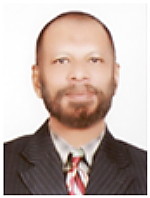
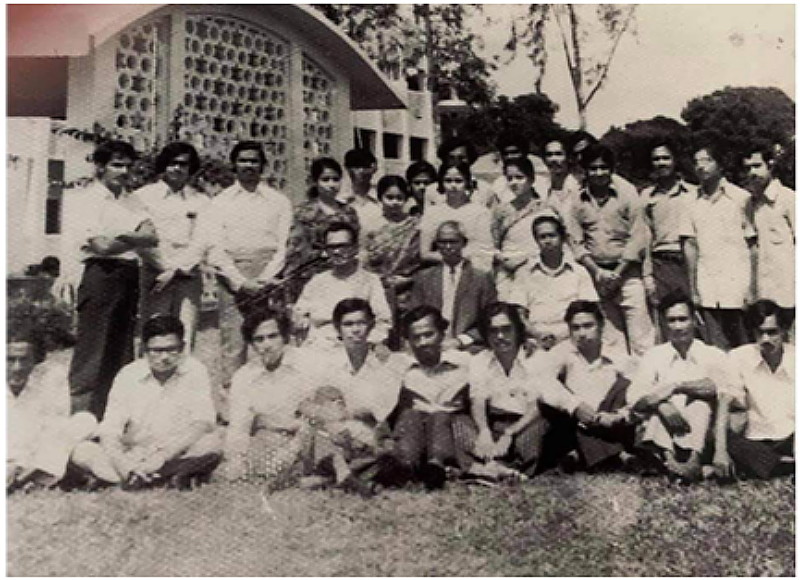
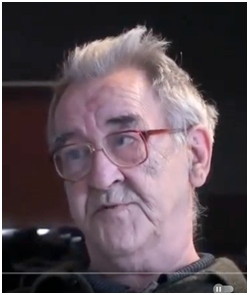
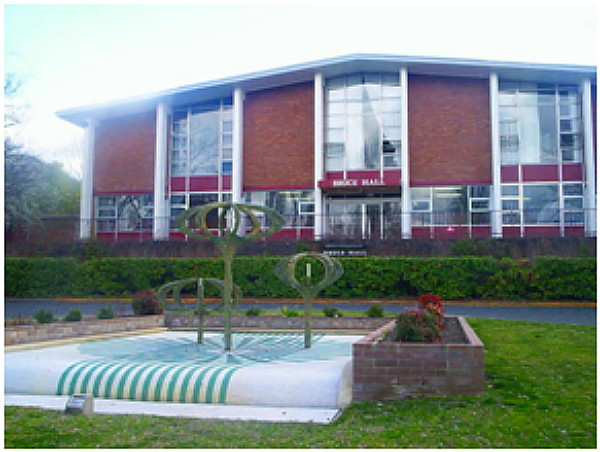
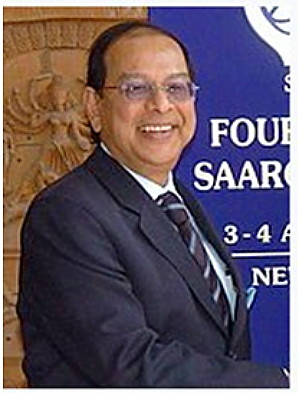
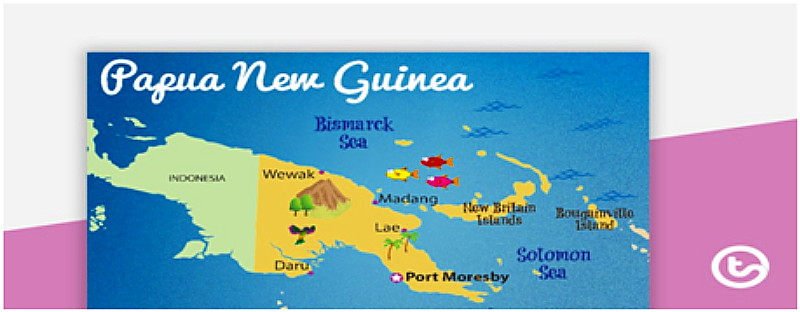
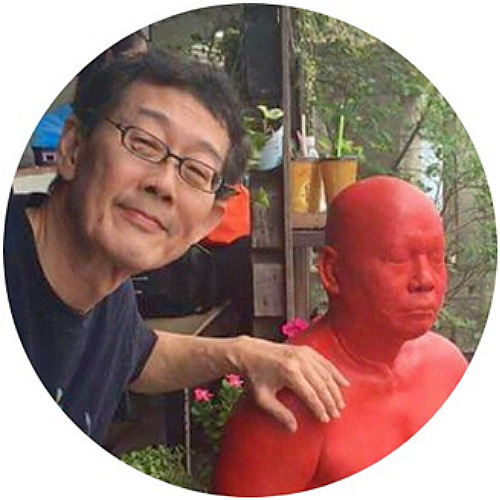

 Nomination Form is available at the end of the notice
Nomination Form is available at the end of the notice 